From the March 19, 2004 issue of the Chicago Reader. — J.R.
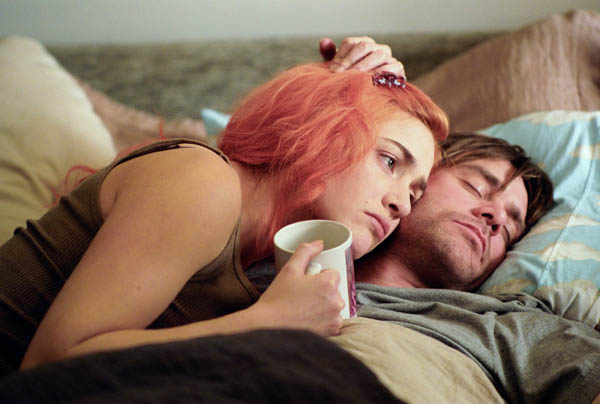
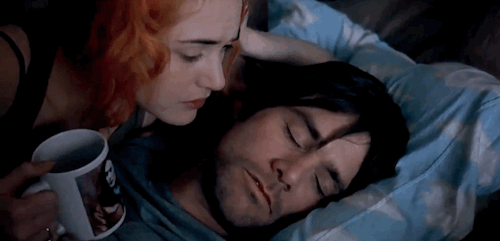
Eternal Sunshine of the Spotless Mind
**** (Masterpiece)
Directed by Michel Gondry
Written by Charlie Kaufman, Gondry, and Pierre Bismuth
With Jim Carrey, Kate Winslet, Elijah Wood, Mark Ruffalo, Kirsten Dunst, and Tom Wilkinson.

How happy is the blameless vestal’s lot!
The world forgetting, by the world forgot.
Eternal sunshine of the spotless mind!
Each pray’r accepted, and each wish resign’d;
Labour and rest, that equal periods keep;
“Obedient slumbers that can wake and weep;”
Desires compos’d, affections ever ev’n,
Tears that delight, and sighs that waft to Heav’n.
–Alexander Pope, “Eloisa to Abelard” (1717)

Only once in a blue moon does a screenwriter who isn’t a director become known as an auteur. Plenty of distinctive movie writers have reputations as actors or as actor-directors, starting with such giants as D.W. Griffith, Charlie Chaplin, and Erich von Stroheim, but they’re rarely celebrated for their writing. You have to go back to Robert Towne, who’s done only a little directing, and Paddy Chayefsky, who never did anything but write and produce, to find auteurs known mainly as writers.
A Chayefsky movie isn’t hard to identify, but I think it’s safe to say that these days a Charlie Kaufman movie is even more recognizable. Read more
From the Chicago Reader (May 14, 2004). This is probably my favorite Maddin feature to date. — J.R.

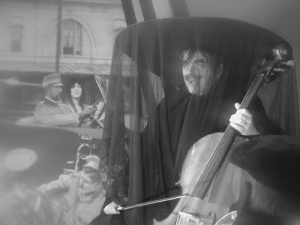
Mannerist film antiquarian Guy Maddin takes a bold step forward with this 2003 feature, a comic/melodramatic musical enhanced by his flair for expressionist studio shooting (in grainy black and white, with selected scenes in two-strip Technicolor). The project originated as a script by novelist Kazuo Ishiguro; revising extensively, Maddin and George Toles, his usual collaborator, turn it into an allegory about Canada’s colonial relationship with the U.S. In the depths of the Depression, a Winnipeg beer baroness (Isabella Rossellini) launches an international contest to come up with the saddest music in the world. Competing for the U.S. is her former lover (Mark McKinney), a brassy Broadway producer; for Serbia the producer’s older brother (Ross McMillan), who grieves for his dead son and vanished amnesiac wife (Maria de Madeiros); and for Canada both men’s father (David Fox), a surgeon who’s drunkenly amputated Rossellini’s legs. Not to be missed. 99 min. (JR)
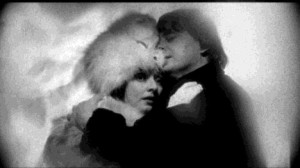
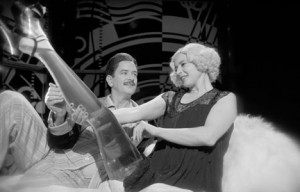 Read more
Read more
Below is my Foreword to The Medieval Hero on Screen: Representations from Beowulf to Buffy (McFarland, 2004), a collection edited by Martha W. Driver and Sid Ray, minus a few editorial tweaks and abridgements. — J.R.
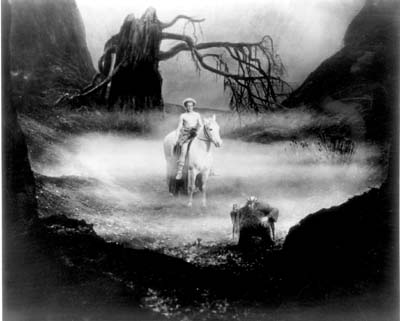
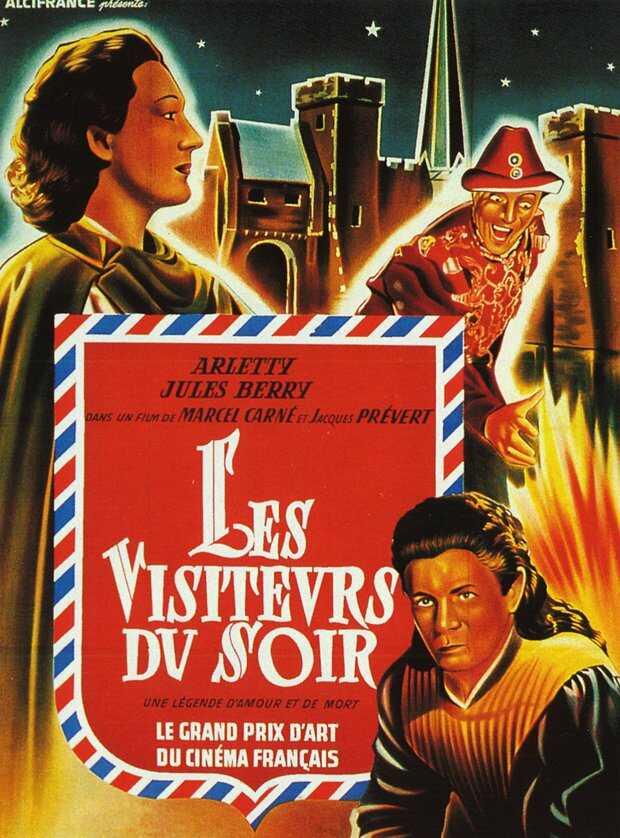
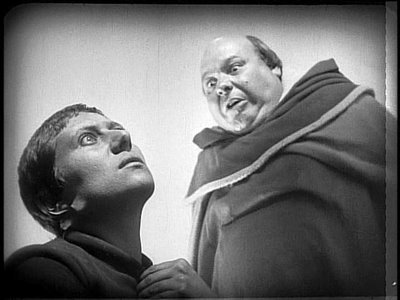
It’s a curious fact, at least to me, that I’m writing a forword to this book, even a short one. I’m neither a medievalist nor a historian; I haven’t seen many of the films discussed, and, perhaps because I spend much of my time reviewing films for a weekly newspaper, the Chicago Reader, I have seen but have mainly forgotten some of the others. As a professional film critic who occasionally gets invited to speak and teach at college campuses, I have the benefit of both close and long-range views of film history, and try to create some two-way traffic between these positions in my writing.
It has always been a handicap for film scholars that one can’t necessarily count on all the important works being widely accessible or even widely known. In the essays that follow, some of my favorite films with medieval themes and settings have only been briefly touched upon —- I’m thinking especially of Carl Dreyer’s The Passion of Joan of Arc and Eric Rohmer’s Perceval -— while others, including Fritz Lang’s magnificent two-part, five-hour Die Nibelungen (1924), and Les visiteurs du soir (1942), a haunting fantasy written by Jacques Prévert and Pierre Laroche and directed by Marcel Carné during the French Occupation, are not mentioned. Read more











